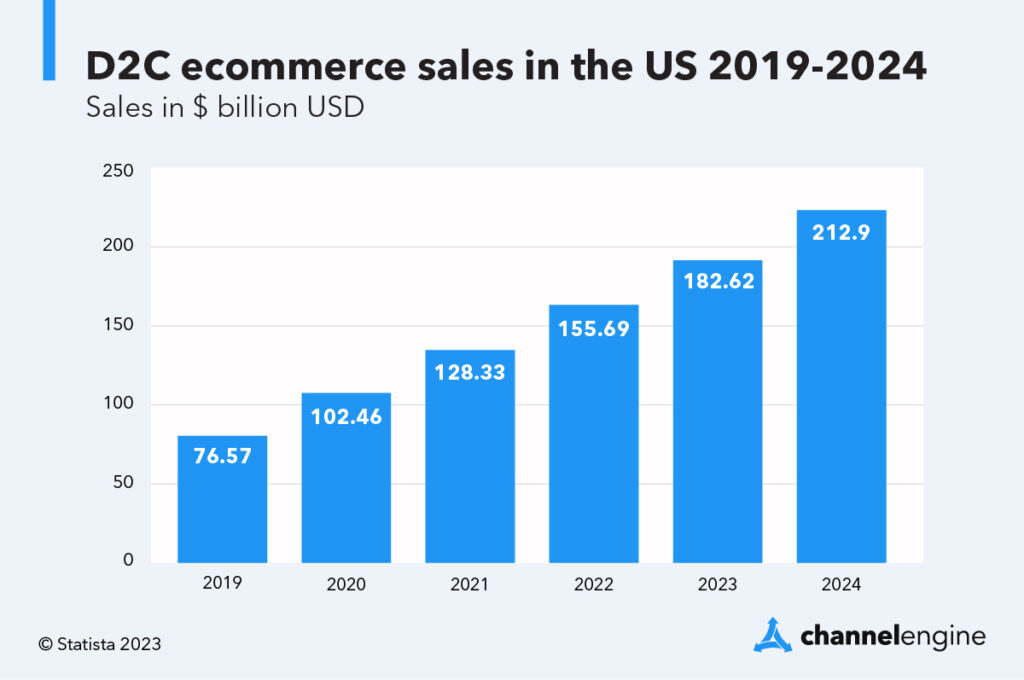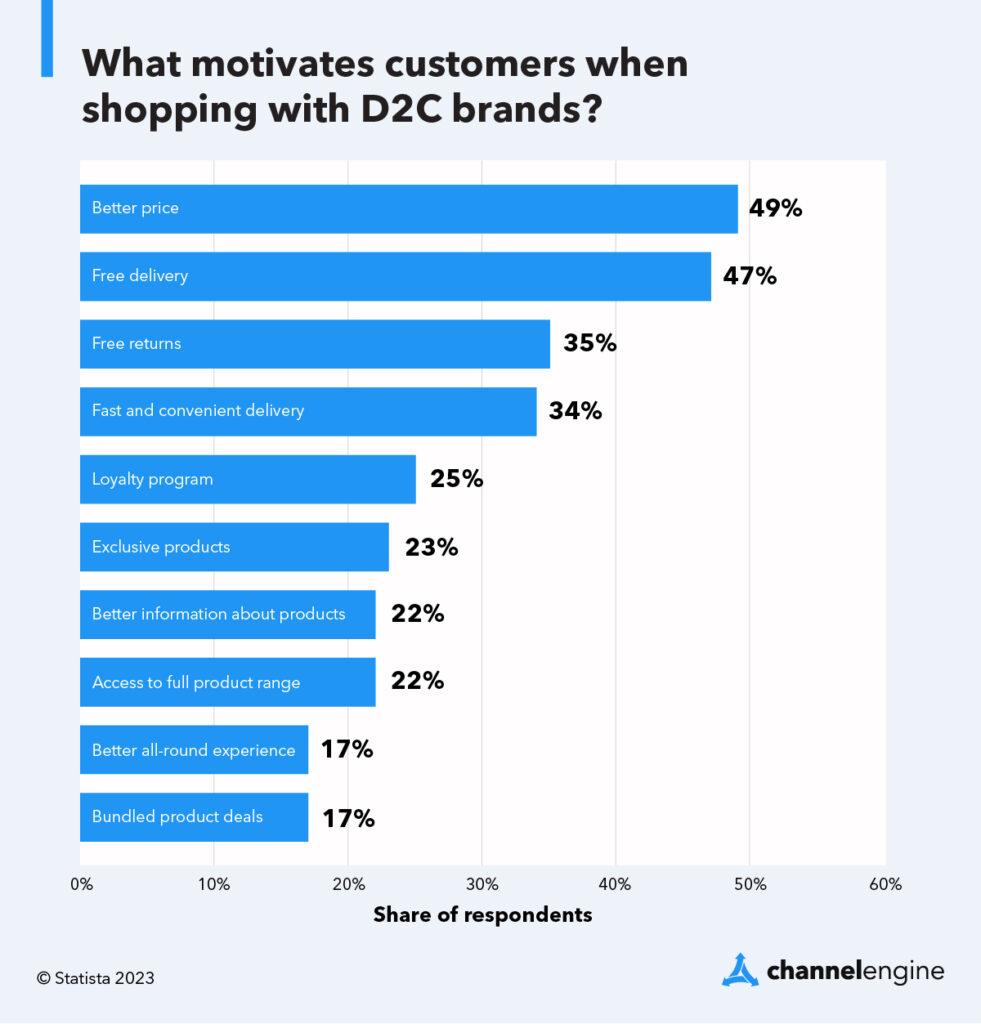Did you know?
Sales can be made through a brand’s own e-commerce platform, such as a website, or through online marketplaces.
Let’s learn more about D2C…
What is D2C e-commerce?
A direct-to-consumer business delivers the products it produces directly to its customers. Put simply, it eliminates the need for a “middleman” such as retail shops, distributors or wholesalers.
While the concept of D2C sales is not new in the dynamic world of e-commerce, its remarkable acceleration, especially during the pandemic years, would have been difficult to predict.
Currently, direct-to-consumer (D2C) e-commerce offers the most promising prospects for innovative brands to establish direct connections with their customers. D2C means that products are sold directly to consumers through a company’s own online shop, without the need for retailers or wholesalers.
Developing D2C e-commerce capabilities allows companies to connect directly with end consumers, facilitating brand strategy alignment and innovation based on real-time consumer insights. These insights enable companies to effectively address consumer needs, resulting in optimised customer loyalty and lifetime value. In the market competitive landscape, D2C serves as a defensive measure in the long terms, but it also offers immediate market share gains. It reduces dependence on e-commerce giants and offers the opportunity to capture a larger share of the expanding online market.
Within the US, D2C e-commerce sales have more than tripled in the past six years and the size of the market has grown from $36.08 billion to $128.33 billion.

D2C ecommerce sales in the US from 2019 – 2024
Photo: Statista 2023
The reasons for choosing D2C sellers
The obvious growth numbers are strong evidence that brands that are able to combine great products with a high-quality customer experience are in an incredibly strong position to succeed.
Statista (https://www.statista.com/) revealed that when deciding to buy directly from a brand, as compared to retailers, the better price is the most important reason for the decision: 49% of customers indicate this reason. Free delivery comes second, with 47% of shoppers preferring it, and finally 35% said that free returns were high on their list of priorities.

What motivates customers when shopping with D2C brands?
Photo: Statista 2023
D2C companies offer several advantages that can contribute to their success:
-
Pricing control
D2C allows companies to have direct control over pricing strategies, eliminating their dependence on intermediaries such as retailers or wholesalers. This control enables companies to set prices competitively, implement dynamic pricing models and adapt pricing strategies to market conditions.
-
CRM and data ownership
Direct interaction with customers in the D2C space enables companies to fully own customer data and establish robust customer relationship management (CRM) systems. This ownership provides valuable insights into customer preferences, behaviour and buying patterns. With this data, companies can personalise their marketing efforts, improve their product offerings and enhance the overall customer experience.
-
Command over brand reputation
By controlling the entire customer journey, D2C companies have greater control over their brand reputation. They can ensure consistent messaging, brand image and customer experience, building brand loyalty and trust. This control enables companies to protect their brand reputation from potential misrepresentations that may occur through third-party channel
-
Go-to-market at your own pace
D2C enables companies to set their own pace for product launches and market entries. They have the flexibility to experiment, iterate and refine their offering before expanding it. This freedom allows companies to tailor their go-to-market strategies to their specific goals and target audiences, leading to more effective market penetration.
-
Build customer loyalty
Direct interaction with customers fosters a stronger emotional connection and builds customer loyalty. D2C companies can create personalised experiences, provide exceptional customer service and offer tailored promotions or rewards. This builds long-term customer relationships that lead to repeat purchases, brand nurturing and increased customer lifetime value.
Overall, the D2C model provides companies with greater control, ownership and flexibility, enabling them to improve the customer experience, build stronger brands and achieve sustainable growth in the competitive marketplace.








